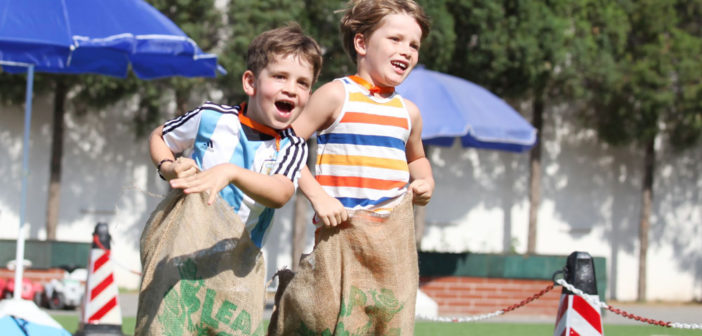How often have you and your family gone camping and enjoyed the great outdoors? The fresh air, the clear night sky, tents, barbecues and s’mores, endless stories, and surprising discoveries – all of these are truly memorable experiences that we do not get every day. For children and adolescents, camping is a defining moment that enhances their personalities. These days though, going to camp often means something more than tents and s’mores.
During summer, many schools in different countries conduct camps, retreats, jamborees, or even give internship opportunities for kids in a way to boost their experience and awareness of many things without sacrificing vacation vibes.
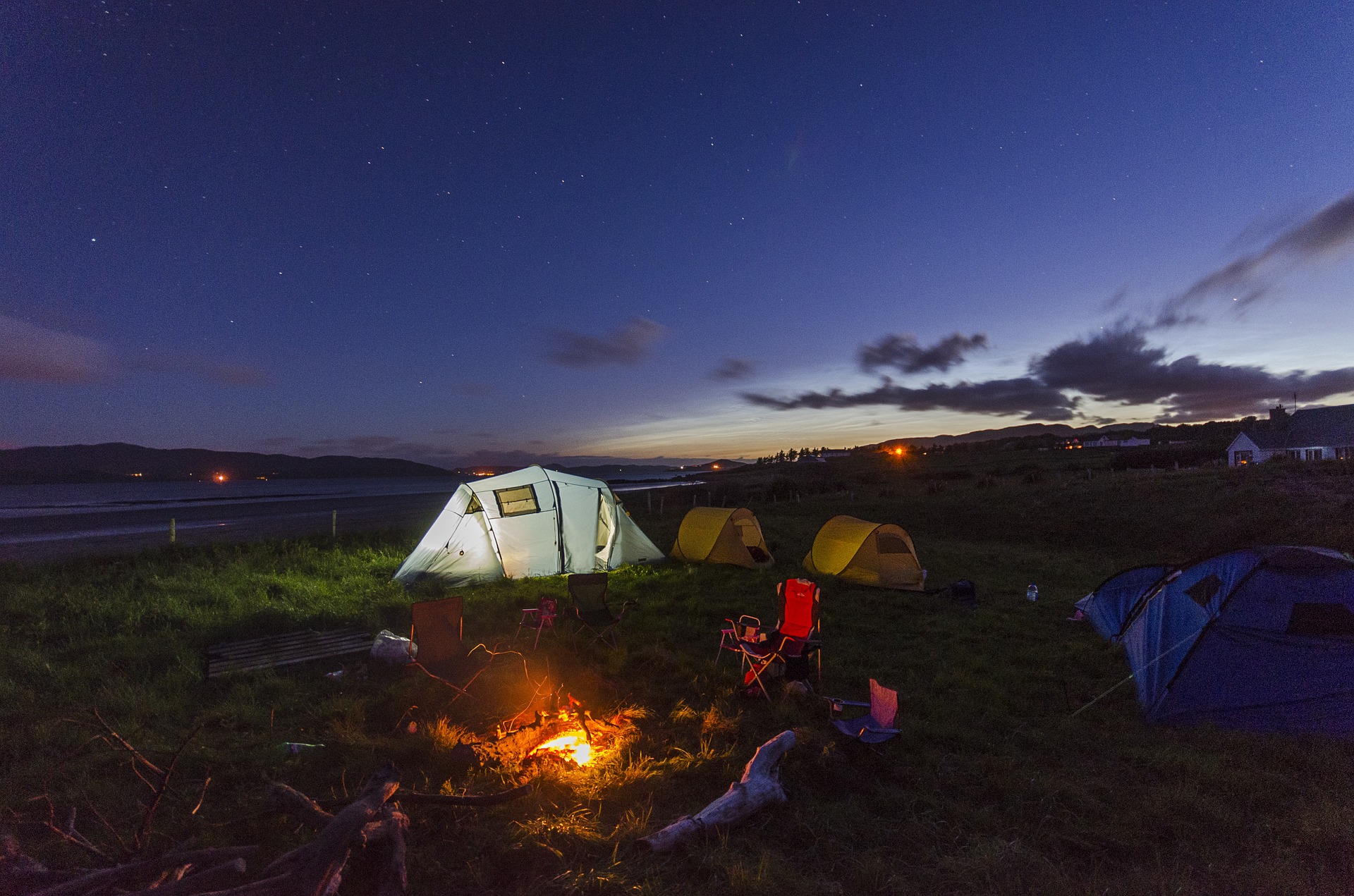
Some of the best childhood discoveries happen at camps. (Photo by pooch_eire via Pixabay)
I took advantage of two such experiences as a boy: a retreat back in Grade 8, and a Grade 12 internship. The retreat involved a visit to a nearby town where we partook in prayer groups and fellowships. It gave me a new perspective on life, and helped me become more independent. My internship was in the same school where I worked as a student assistant for our Personality Development teacher, which was a big plus considering she taught me proper decorum and social graces.
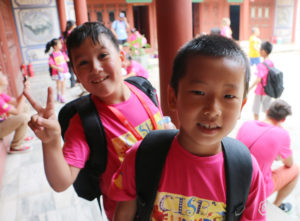
Camps are fun activity that lets kids collaborate. (Photo courtesy of CISB)
Years of research by various child development professionals suggest that these activities are beneficial to the well-being of children, especially in their foundation years. In an article posted on the American Camp Association, Peter Scales said that camps provide experience and satisfy young people’s need for “physical activity, creative expression and true participation in a community environment.” Academic and camp owner Stephen Fine said in his 2005 doctorate thesis that personal, social, and physical learning obtained through camps are carried over into school studies. His research is reported on www.ourkids.net, along with viewpoints of other professionals toward summer camps.
On the Internet, countless resources highlight the value of camping. In this age of ubiquitous technologies, camps provide an indispensable view of the real and the physical as opposed to the virtual. Rook Brook, a girl’s camp in the US, says children campers “unplug from technology,” which in turn lets them “rediscover” their creative potential.
Camping can be viewed as a microcosm of how different social groups interact with each other. It is also seen as an institution where children can learn definitive social and life skills such as communication, collaboration, and leadership. On top of that, camping fosters a social environment different from school or home. As a result, children “reinvent” themselves and break out of usual habits, which in turn boosts their confidence.

Bringing out kids’ inner thespians. (Photo courtesy of Beijing Playhouse)
A Fun Breather
While the concept of summer camps in Western countries is mostly a fun breather from children’s academic responsibilities, in China it’s strongly linked to academic achievement. Chinese parents who can afford to bring their children to a camp say it is an opportunity to boost their English language training or a preparation for their future study abroad. Various foreign educational institutions based in China also believe overseas camps are a great way to introduce the world to students, with one firm saying camps are an “educational portfolio [for children to become]world citizens.”
Some international parents in Beijing, meanwhile, have gone back to their home country with their kids whom they sent to summer camps or to their grandparents’ home. AJ Warner, an educational consultant, had his two sons join a camp in Pennsylvania last summer.
Are Camps Worth It?
Of course, camps are an expense added on top of yearly school tuition fees. Does that deter parents from sending their kids to these institutions? It depends on a variety of factors. But there are still parents, like Lucia Su, who are prepared to shell out money to bring their kids abroad for camps. Her five-year-old son Lucas, an avid hockey fan, is about to start school. Su said she wants to bring him first to Singapore to play, and then in the future to an overseas camp where Lucas can hone his hockey skills.
Another issue is the glut of choices in a city as big as Beijing. The huge market of international schools, educational firms, and institutions all claiming to offer the best children’s camp leads parents to ask, “Which one is really the best?”
Keystone Academy, which offers two distinct academic camps this summer, explains that school-run camps are motivated by school vision and mostly give what is not readily available in the general education market. Jay Lin, director of Keystone’s summer program, said the topics at school-run academic camps are enriching and help children realize their roles in the natural world.
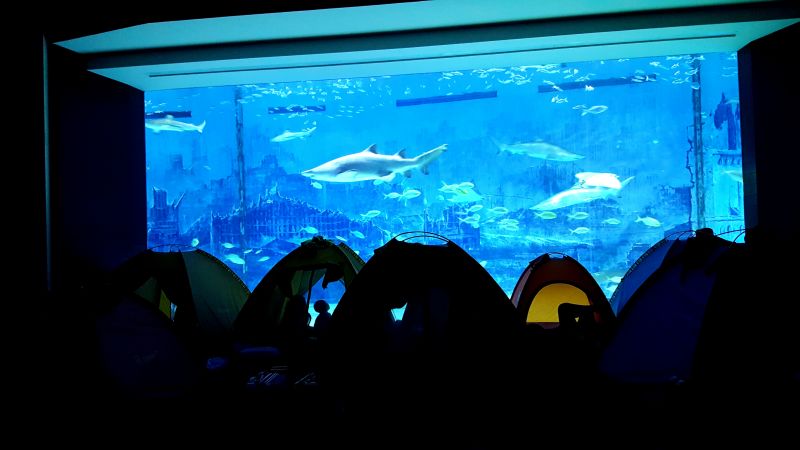
Camping inside the Beijing Aquarium. (Photo courtesy of Keystone Academy)
Parents might wonder what the difference is between camps, usual classes and after-school activities. The Learning Center explains that camps such as theirs are “specifically designed to assist children in areas where they may need a little extra help” by offering a more-focused approach to enhance their skill sets and strategic thinking.
On the other hand, institutions and companies that offer seasonal camps often employ foreign experts and qualified professionals to ensure optimum learning in a fun environment.
Whether Western-style or patterned on Chinese culture and academics, we’ve got you covered with a list of interesting camps in Beijing.
Featured photo courtesy of House of Knowledge.
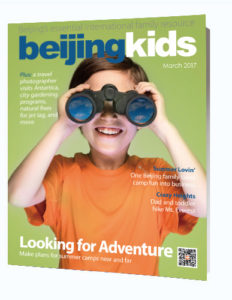
This article originally appeared on p. 32-35 of beijingkids March Issue. Download a copy here.

Do you have summer camps you want to be included in our listing? Let us know by leaving your message in the comments section below. You can also email us at webeditor@beijing-kids.com or follow us on WeChat (scan the QR code)

